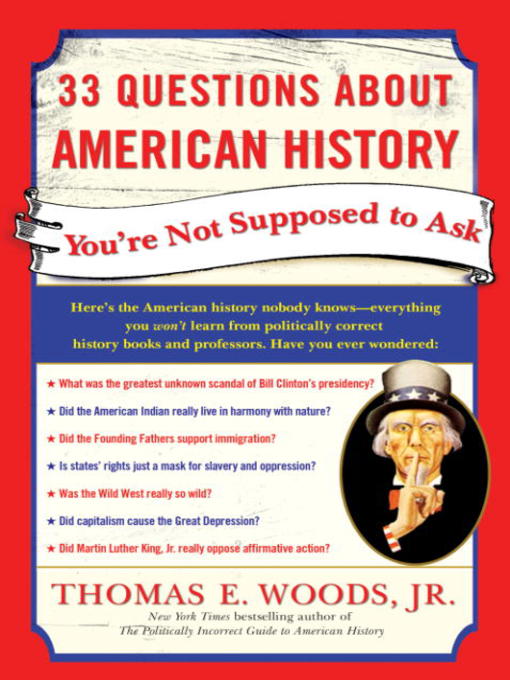
33 Questions About American History You're Not Supposed to Ask
کتاب های مرتبط
- اطلاعات
- نقد و بررسی
- دیدگاه کاربران
نقد و بررسی

May 7, 2007
W
oods (The Politically Incorrect Guide to American History
) argues that the history lessons schoolchildren learn are ideologically driven distortions aimed at producing citizens who believe that big government is good and big business is evil. He aims to set the record straight. He says that Americans have been fed propaganda about the origins of Social Security, which is nothing more than a tax. Indeed, Woods thinks nothing good came out of the New Deal, which, far from lifting the U.S. out of the Great Depression, actually prolonged the nation's economic woes. Much of the book touches on issues of race: desegregating public schools hasn't really helped black children; racial discrimination is not the main cause of the gap between blacks' and whites' salaries; and Martin Luther King Jr. was a dangerous radical who “sought an immediate, palpable improvement in blacks' material condition,” a vision he thought could be achieved by “racial quotas” and socialism. Blacks, according to Woods, should model themselves not on King, but on an enterprising if oft forgotten 20th-century self-made man, S.B. Fuller.

June 1, 2007
Spread among current events and constitutional law, Woods 33 questions extendhis criticism of liberal viewpoints on American history elaborated in The Politically Incorrect Guide to American History (2004). Ideas that the Constitution is a living document, that the New Deal ended the Depression, and that foreign aidalleviates world poverty are some nostrums the author critiques, while others are more populist. Should you heed, for example, historians rankings of presidents? Perhaps as measurements of the history professions ideological tilt, avers Woods, who holds that such lists favor big-government presidents and slight little-government typessuch asCleveland and Coolidge. Woods is also concerned that the concept of states rightsisviewed negatively, so several questions probe its con-law pedigree and the assertion that it, more than slavery, is what the South fought for in the Civil War. Alighting ratherdisconnectedly on the biggest unknown scandal of the Clinton years, George Washington Carvers scientific significance, and Social Security, Woods is at least consistent in maintaining that Americans historical awareness is befogged by myths. Marketed through conservative media, the assertive Woods will generate requests.(Reprinted with permission of Booklist, copyright 2007, American Library Association.)

























دیدگاه کاربران